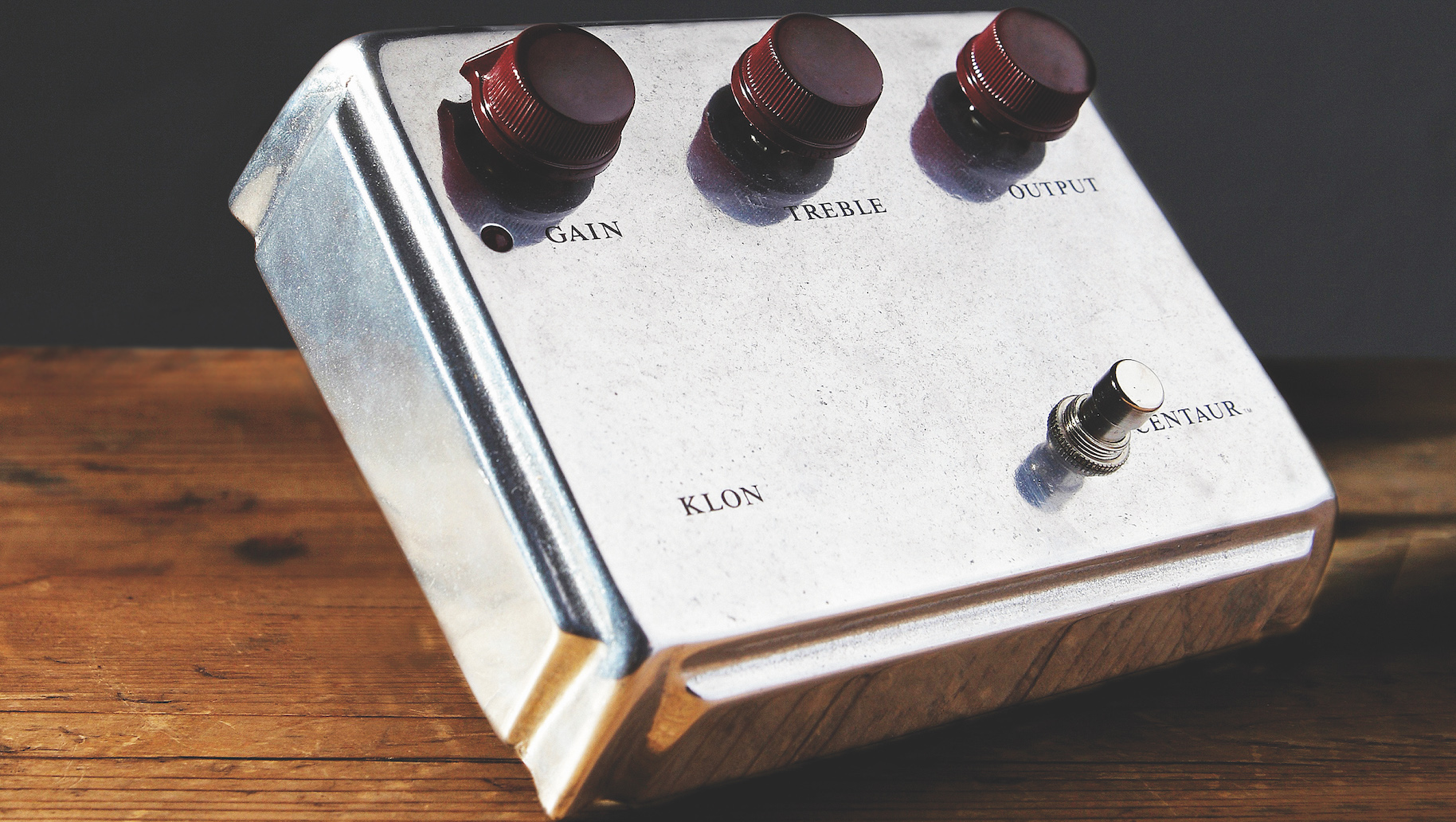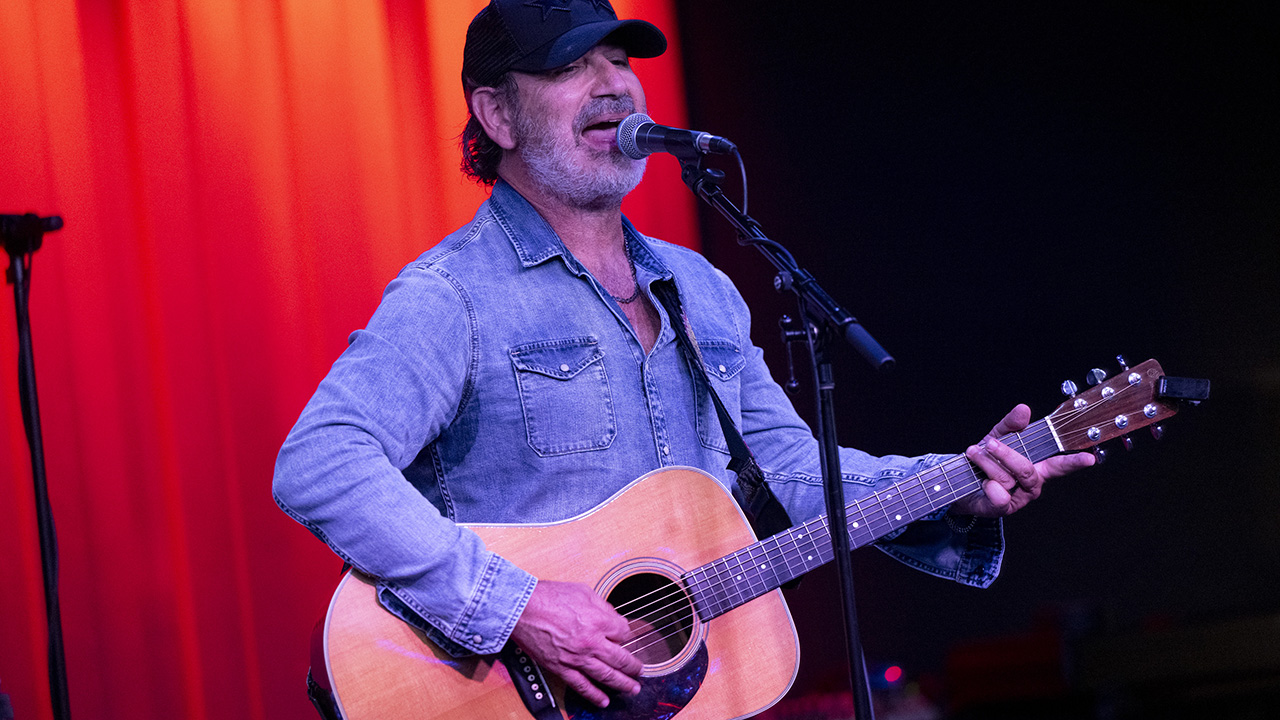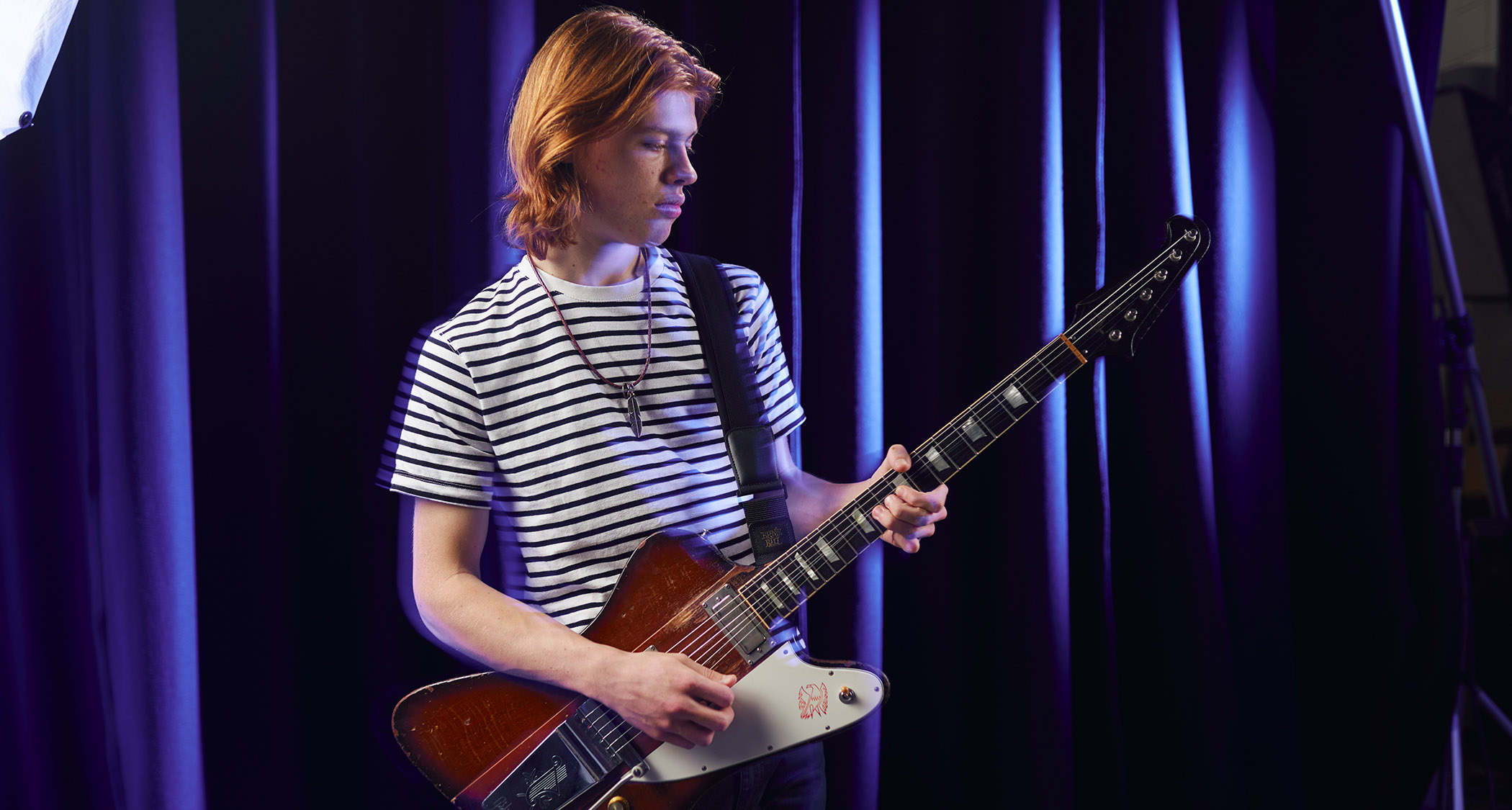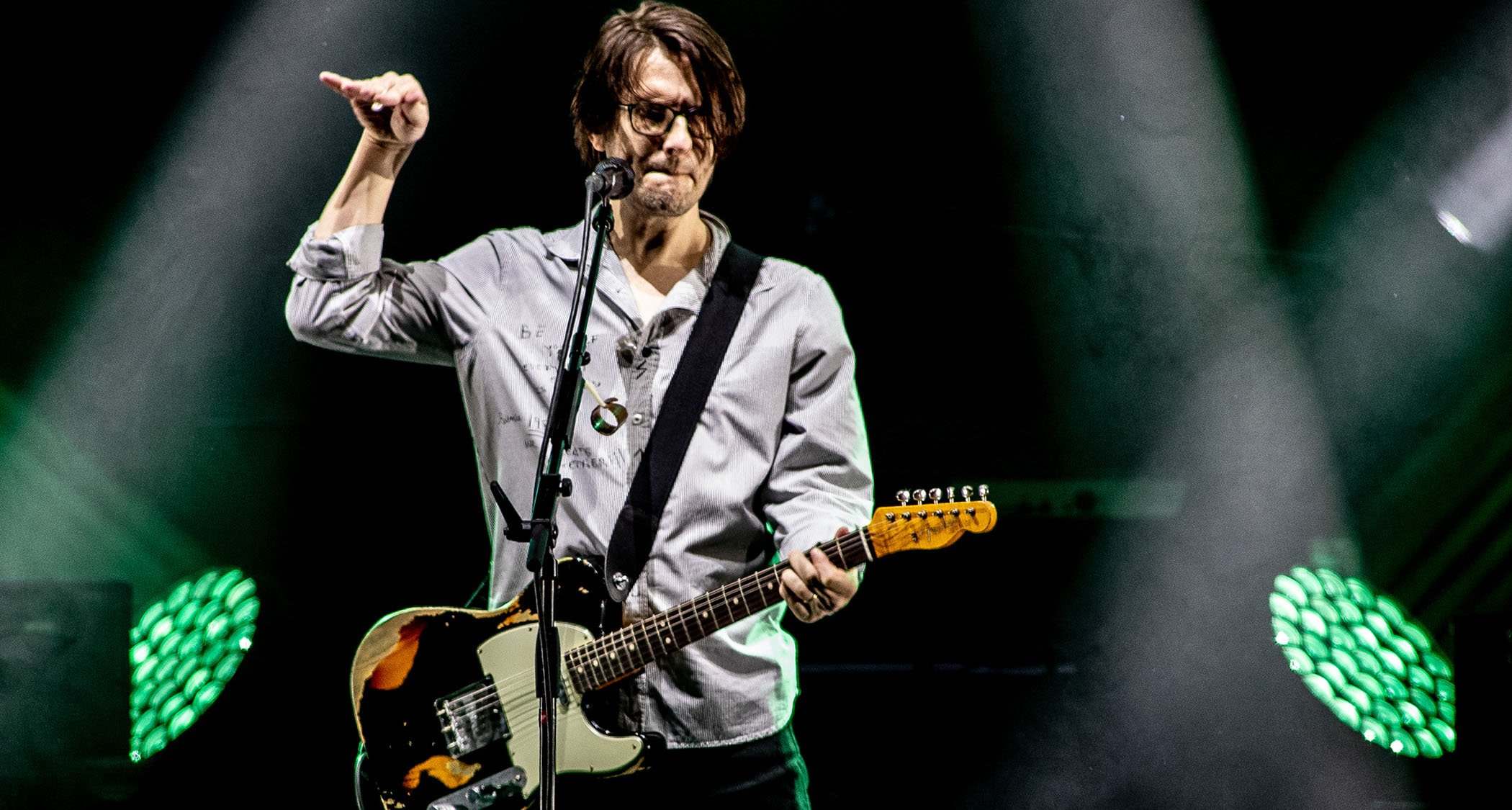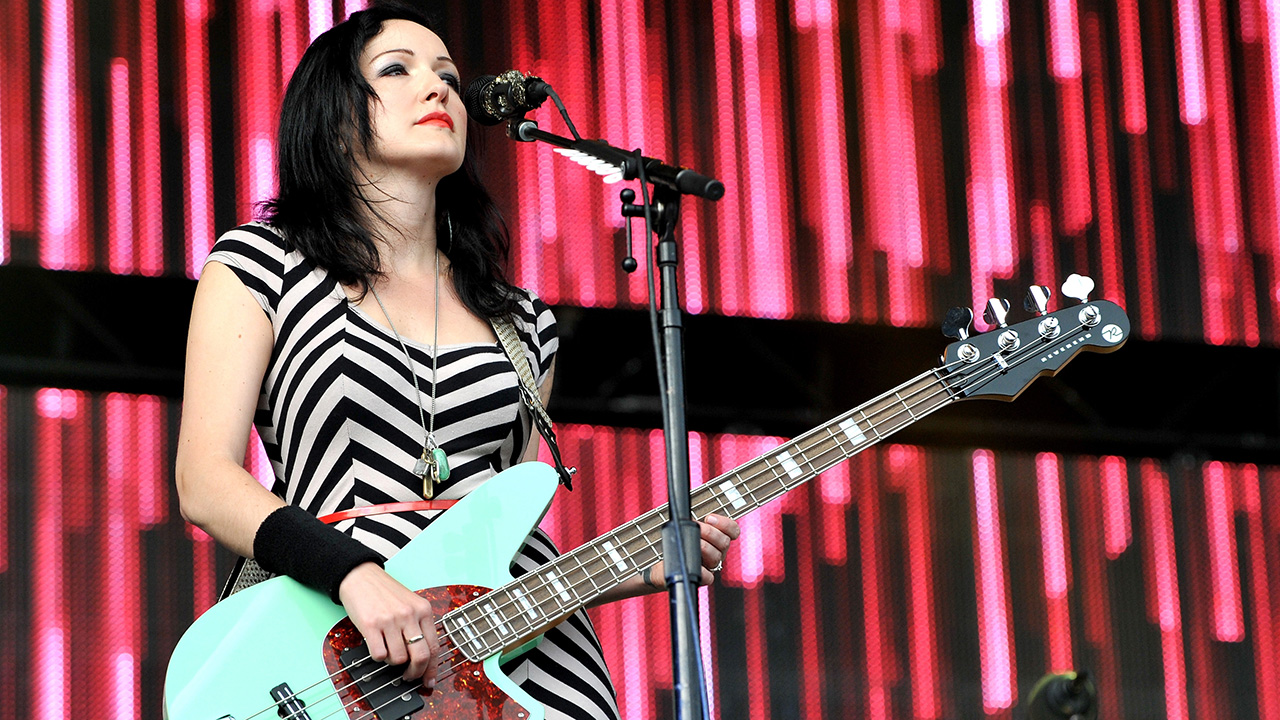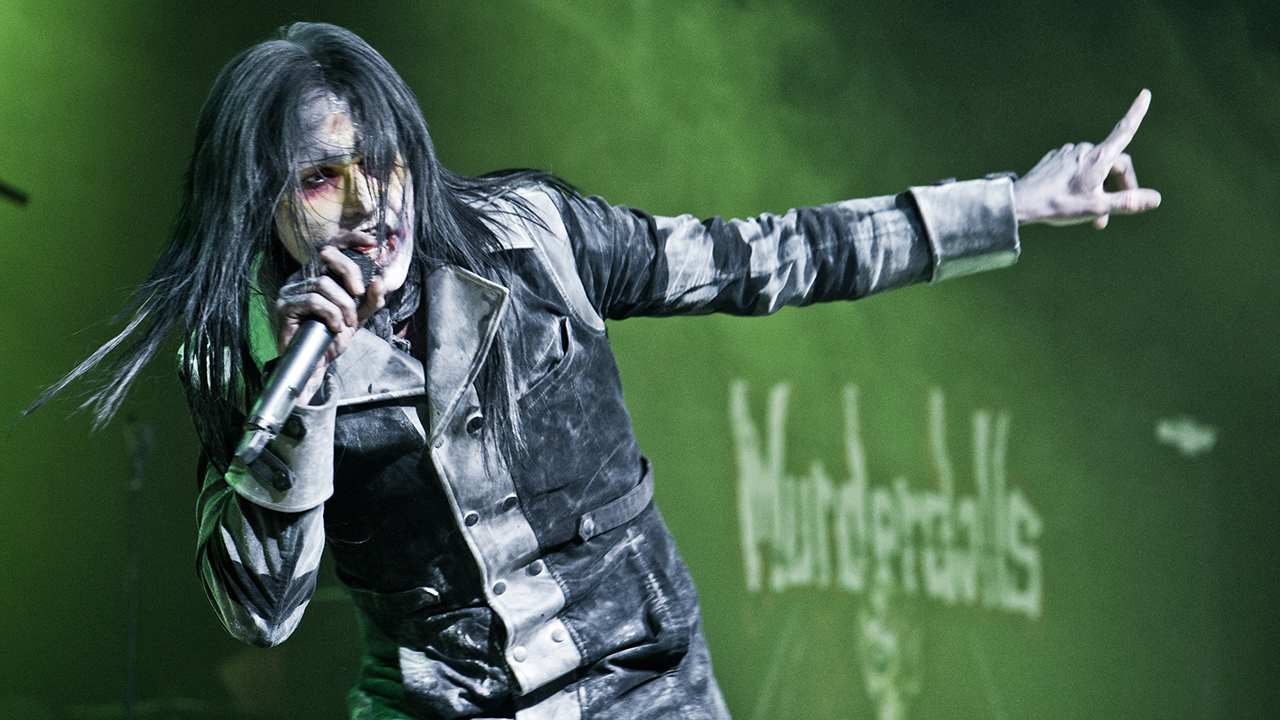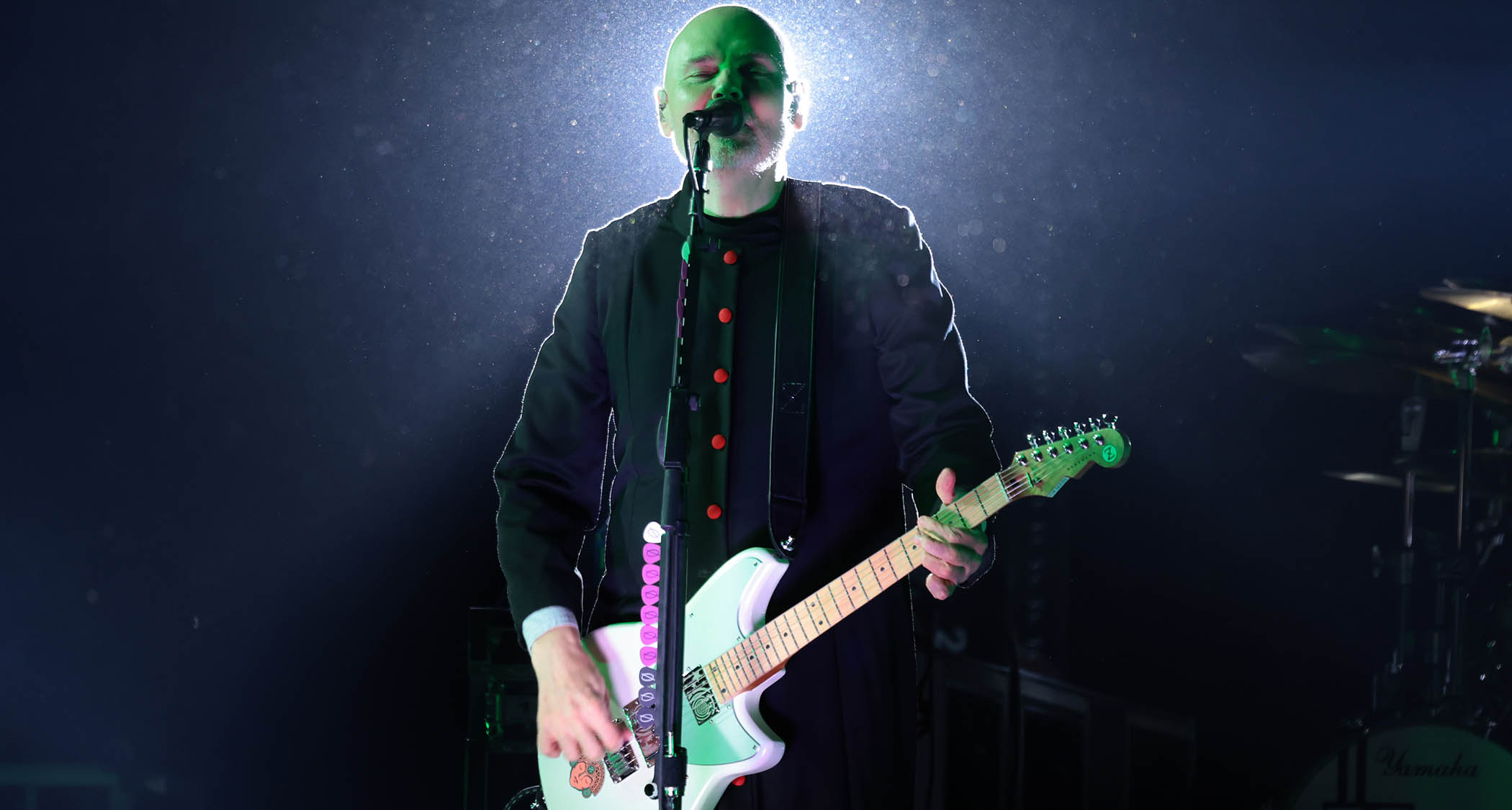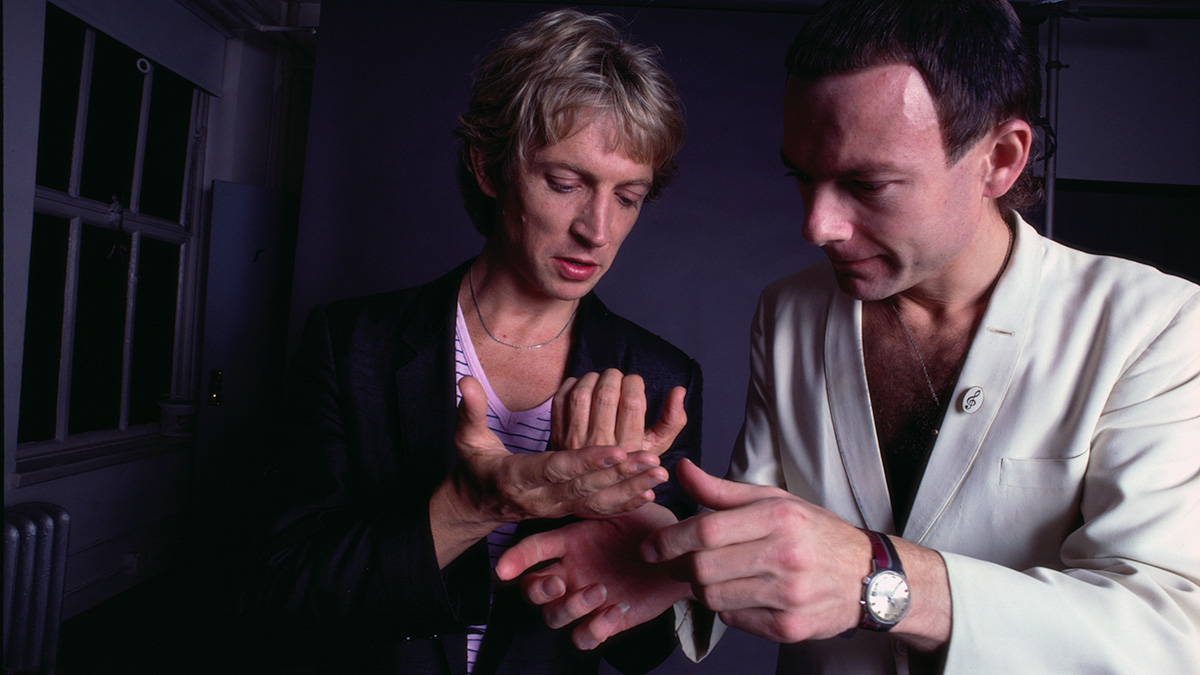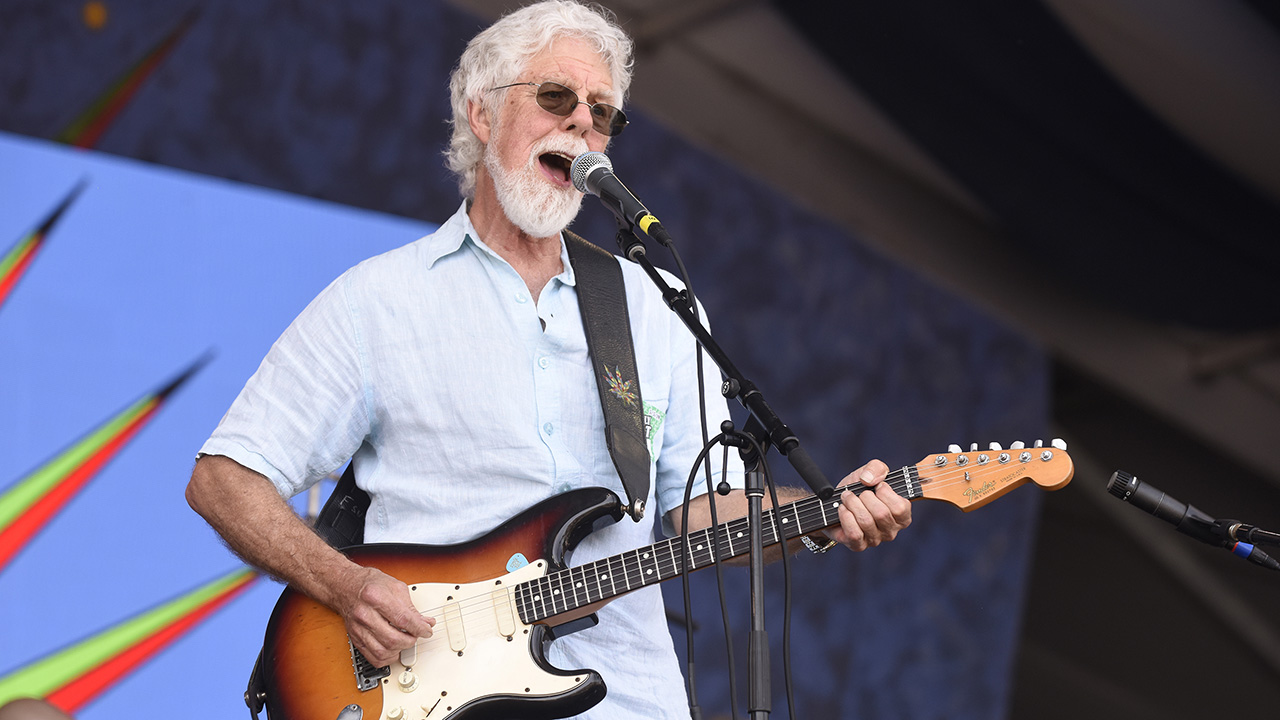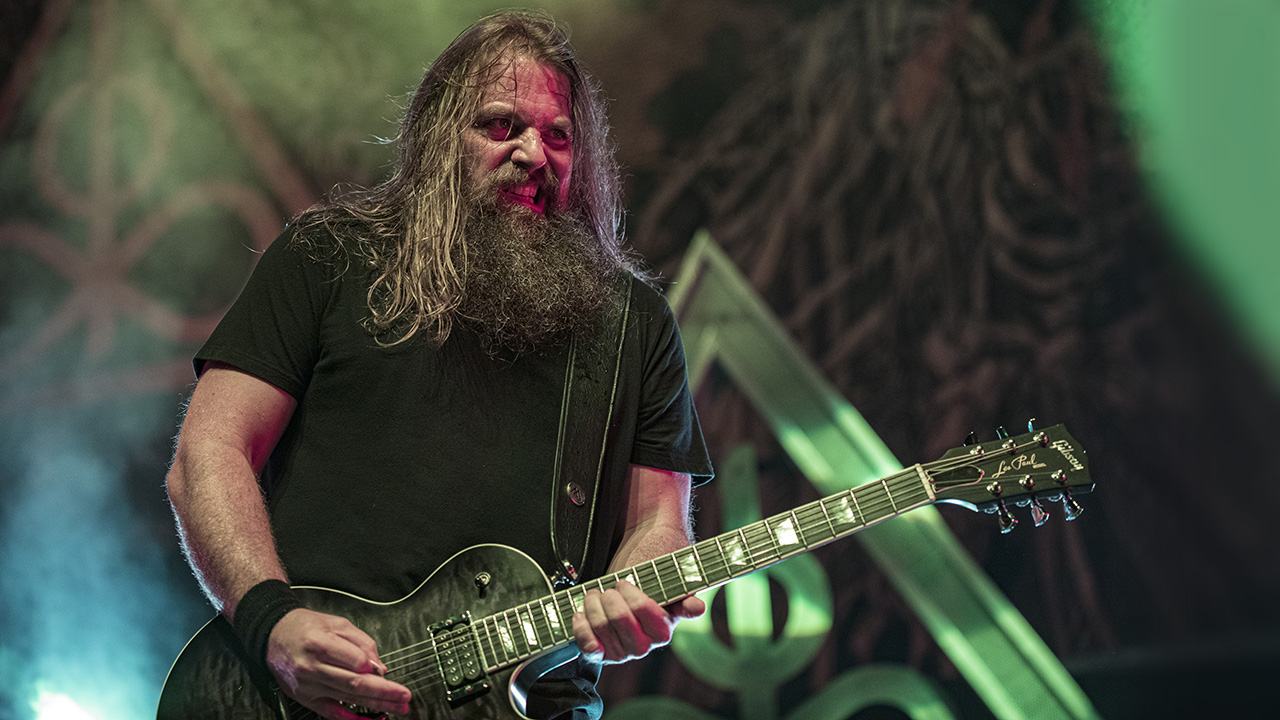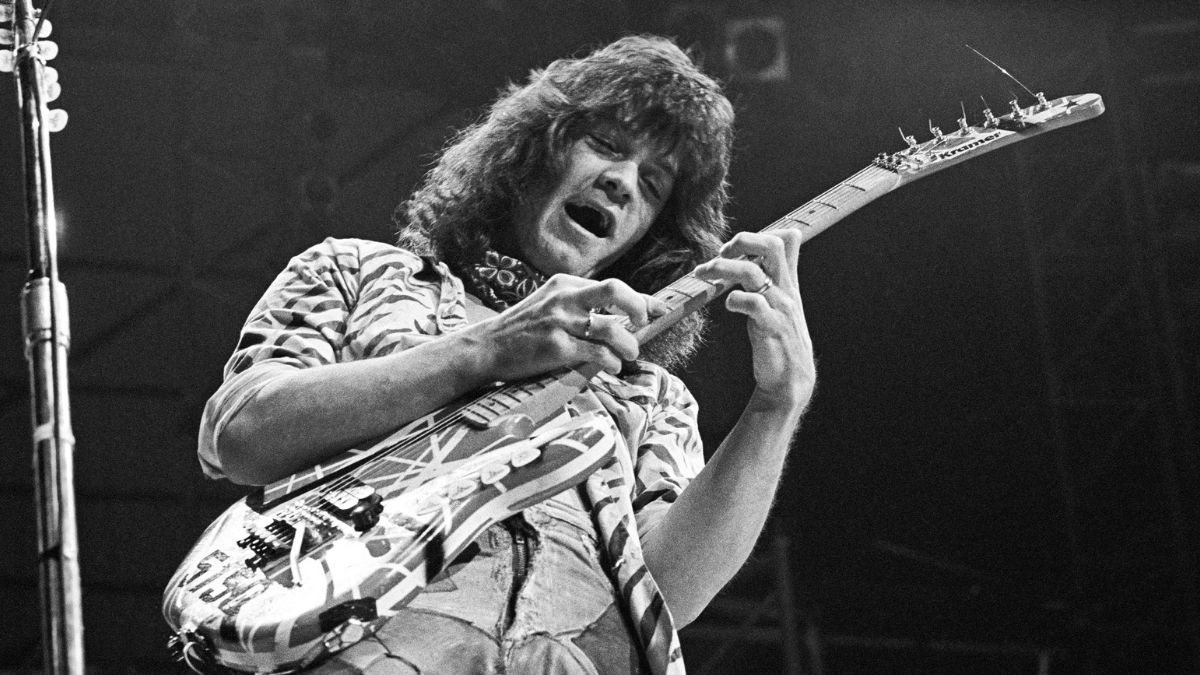Devin Townsend: "A big part of my childhood was just hanging out on the roofs of my friends' houses swapping Van Halen licks"
One of the most versatile performers in modern progressive music takes a look back over his lengthy, storied career
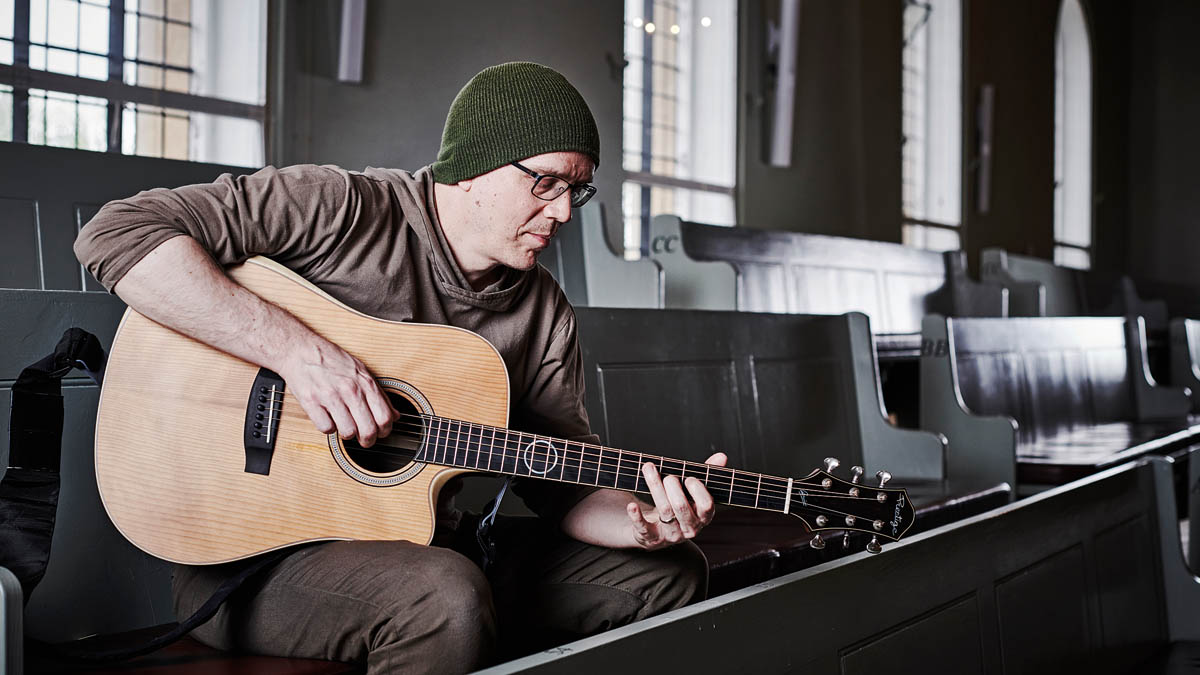
St George’s, Bristol is an unlikely venue to find Devin Townsend - the 19th-century former church is more used to playing host to orchestral recitals and polite folk music rather than Hevy Devy.
However, tonight it couldn’t be more suitable. Devin is here solo, armed only with his acoustic guitar, Axe FX and a laptop to perform songs spanning his career, interspersed with Q&A sessions with the audience.
During his soundcheck, we witness a fittingly chaotic take on Mr Blobby (“He was big when I moved here in the 90s”), while Devin’s ambient guitar sounds bounce around a room that is renowned for its acoustic response.
When it’s time to check the vocals, Devin effortlessly flips between orthodox choral singing techniques and guttural screaming, perfectly encapsulating the diverse and eclectic nature of his music. For his latest, Empath, Devin walked away from the familiarity of the Devin Townsend Project and its members in favour of a host of guest appearances.
“Empath was an 18-month process that was a result of me being aware of the fact that the last three records I’ve done have been continually more safe in terms of how I present my vision.” he tells us. “And I figured that the only way to shake that up would be to challenge myself in various ways.”
In the mid-80s, the guitar was what video games are to kids now
“I think the overriding way was to use my back catalogue as a springboard for writing music that reflected each era in a new composition. By doing that, I felt that I could quantify my relationship with that musical aesthetic. The people I used on the record are also in very much the same light, coming from disparate musical backgrounds.
"There’s a lot of the Zappa alumni, for example. Some younger guys who are involved in more current things, some death metal guys, some prog guys, a women’s choir, orchestras, Chad from Nickelback, Vai… That desire to have all of those different colours on the record fitted in with the music that seemed to be presenting itself, and there’s Empath!”
Get The Pick Newsletter
All the latest guitar news, interviews, lessons, reviews, deals and more, direct to your inbox!
Devin has had many different guises – solo artist, vocalist for none other than Steve Vai, producer, and even a one-time member of The Wildhearts. Here, he takes a candid look back over the experiences that have helped shape his career.
Let’s start at the beginning, what first drew you to guitar?
"I think guitar might have been slightly later. I picked it up because my dad had an acoustic hanging around the house. But before that I plunked around on the piano and the banjo, but I didn’t really focus on the guitar until maybe 11 or 12. I don’t think I ever had banjo technique!
"Every stringed instrument I’ve ever played I just tuned like a guitar and played it like a guitar. I was recently playing a sitar and I played that exactly the same way as a guitar. I think my guitar interests started with Chet Atkins, Johnny Cash and a lot of classical stuff, but I think a lot of that was because before I got into metal, I was interested in musical theatre as a kid.
"It really resonated with me because it was broad strokes of emotion that were easy for formative musical minds to adhere certain tonalities with certain emotions. Soundtracks like The Dark Crystal and Tron and Star Wars – those were things that really interested me."
Where did the heavy side come in?
"It all changed when I first heard Slade, which drew my interests towards rock guitar sounds. From there it just kind of snowballed. My dad got really pissed off at a Judas Priest video, so clearly that was next in line – W.A.S.P., Judas Priest, Motley Crue and all that stuff. Then Metallica when I heard Ride The Lightning. It was just so heavy! Then from there it was Anthrax, Venom. Judas Priest was a real big deal for me.
"Then later on Def Leppard came, and I fell in love with it. More so because of the production. It was like a quantum leap. I had my Walkman at the time, and Hysteria was so fucking good that I ignored some of the lyrics, or how Rocket was maybe not so much of a great song because it sounded so good."
The first Van Halen record was such a big part of my childhood that we all used to just hang out on the roof of each others' houses and swap Van Halen licks
"It was around that time that I really got into new age music too. In fact, my love of reverb on guitar probably came from this flute player called Paul Horn. He tracked a record in the late 60s at the Taj Mahal with all the reverb and everything. But the one that really did it for me was this new age-y instrumental keyboard and flute band called Emerald Web. Cat Apple who is the flautist in that ended up playing with me on Ghost and Casualties of Cool and stuff.
"I actually usually prefer it when there’s no guitar in it. Not no guitar, but Radiohead on a good day – everything after Kid A and In Rainbows – that type of guitar and production I think is great, they do things that I find really interesting. Massive Attack as well. That’s why I like being in Bristol, that whole scene that was here was a big thing for me too. Mezzanine is still amazing now."
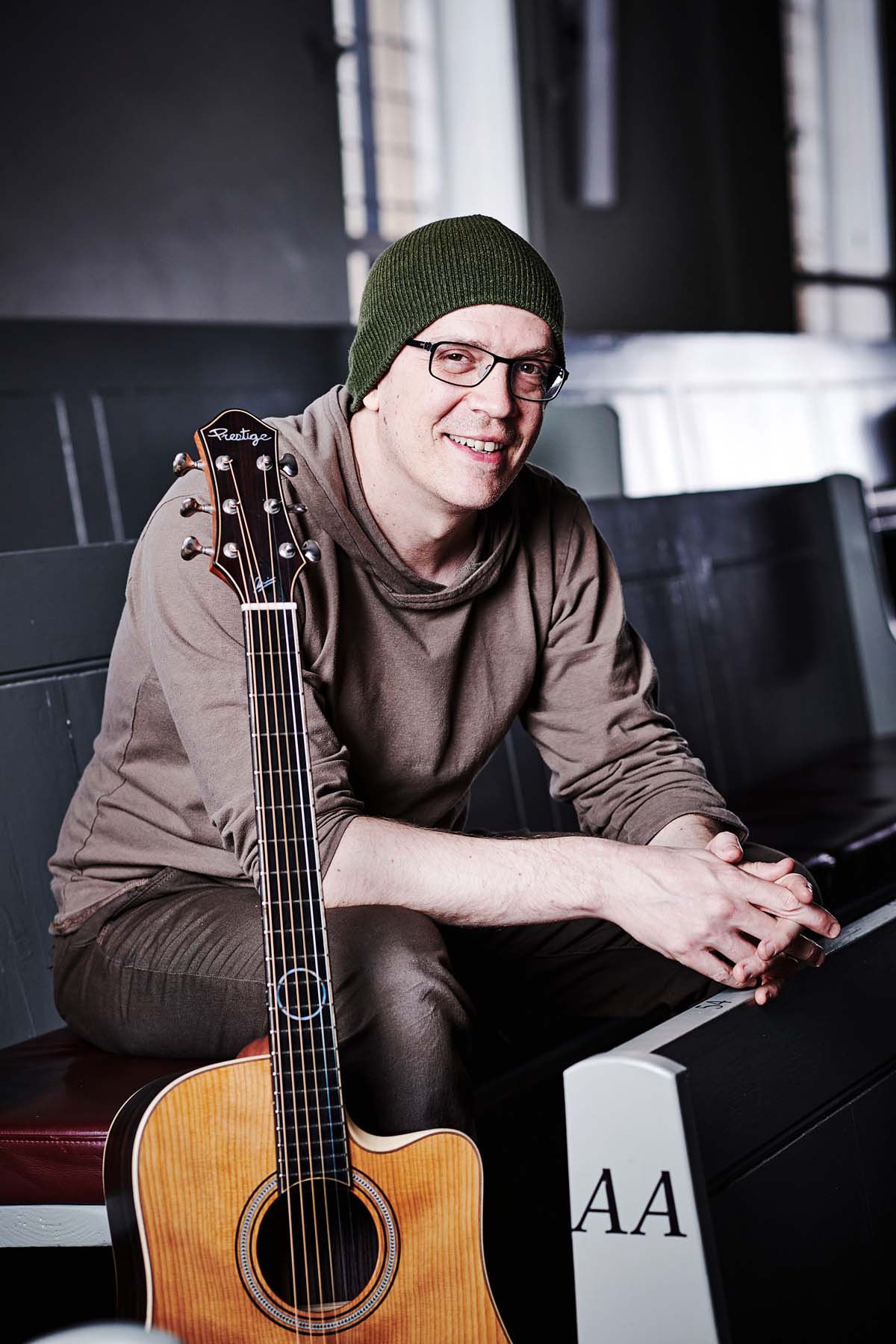
Birds of a feather: "I've always been a bit of an odd duck. Guitar was a way to participate in what others were doing."
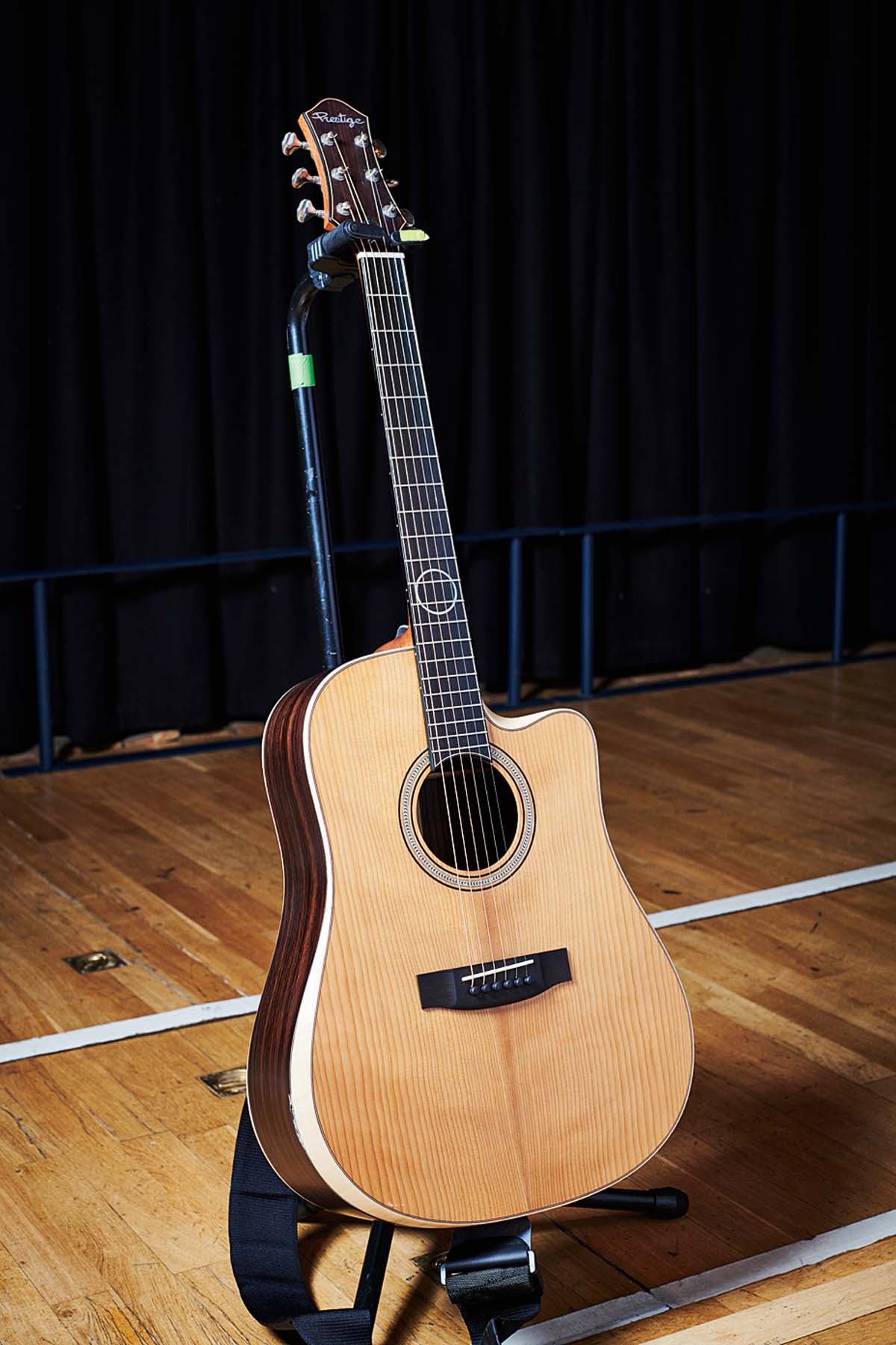
Prestige rolled out a Devin Townsend Signature Empath acoustic in November last year
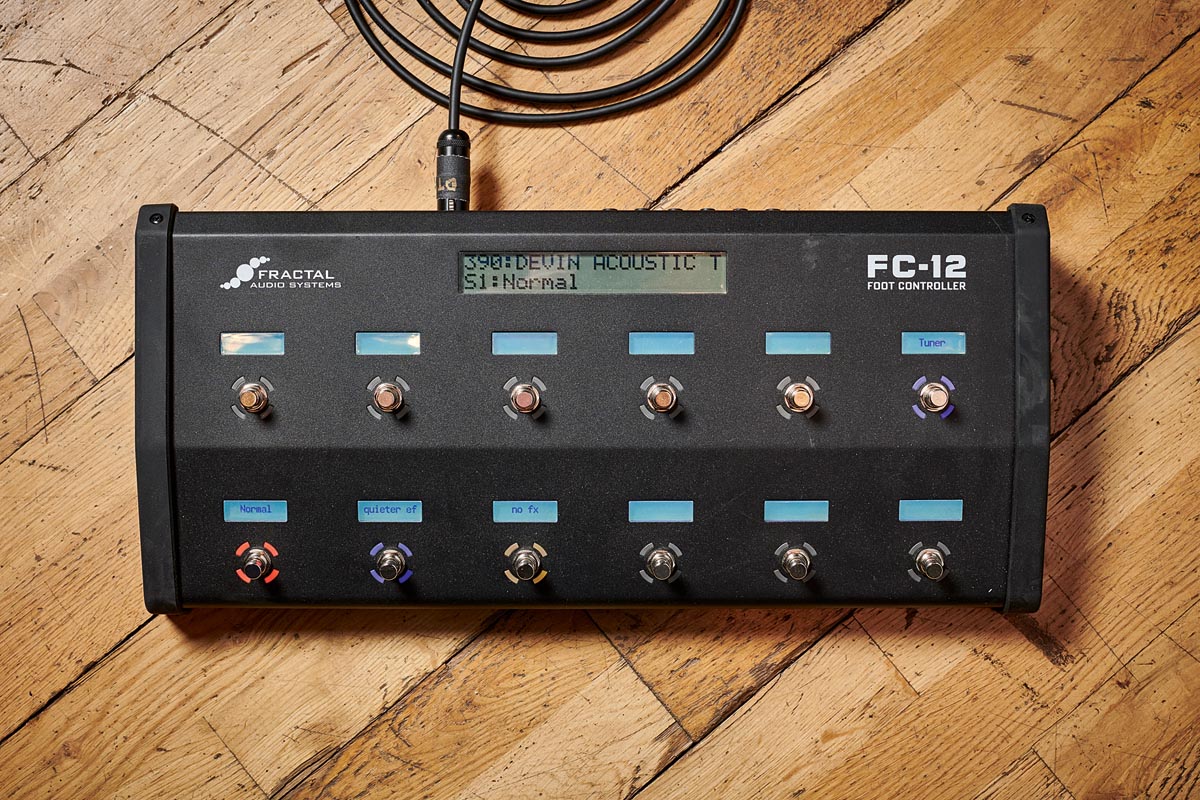
The Fractal FC-12 controls everything in Townsend's "perfect rig"
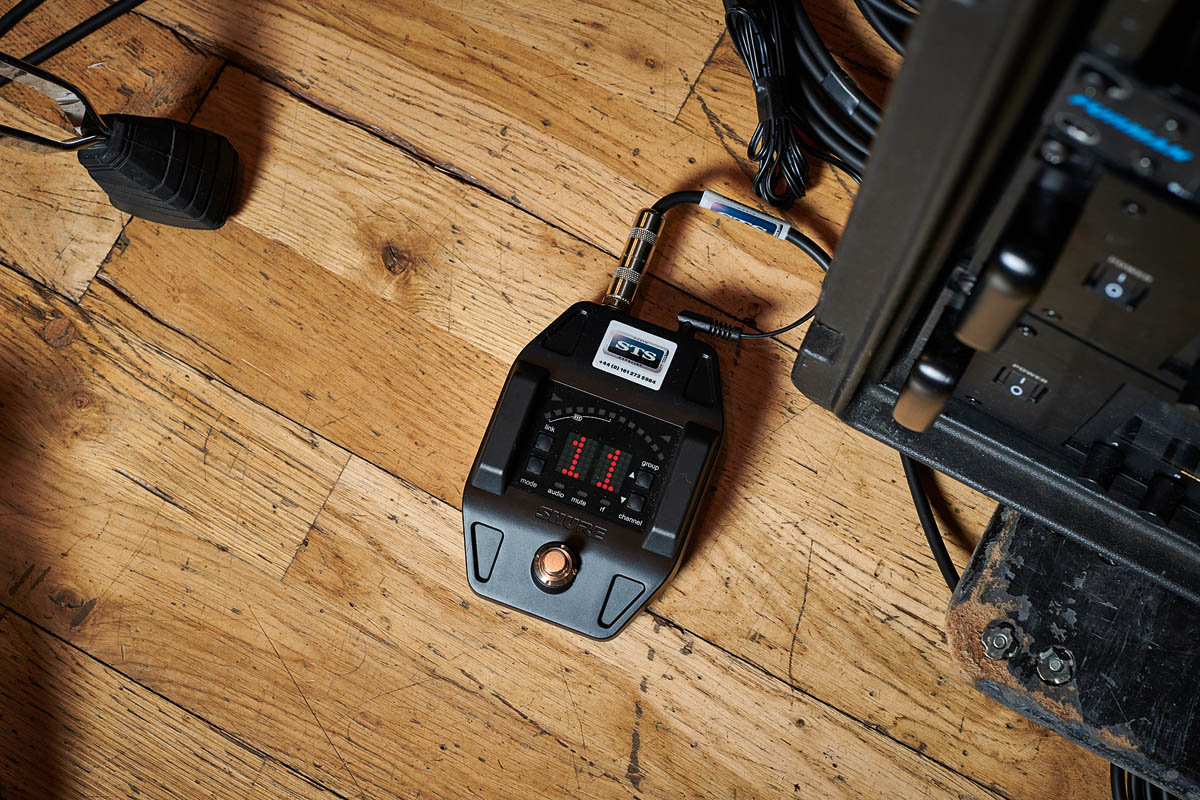
Even with a stripped-back set-up, Hevy Devy's sound is as unique as ever
What made you decide to stick with the guitar?
"I think it was the aesthetic of the guitar. In the early to mid-80s, the guitar was what video games are to kids now, I think. Even though we had games back then, the guitar was really a social thing. And maybe because admittedly I’ve always been a bit of an odd duck, the guitar was a way for me to participate in what other kids were doing.
"I wasn’t really ever ostracized at all, but I was never really part of a scene until one day I remember distinctly. There were a bunch of cool kids in the back room of eighth grade band; they had a guitar and one of them was like ‘Oh, I think Devin knows how to play!’ and so I came in and I was playing Judas Priest or whatever. And I think as a result of that, everything just kind of hardwired to [the guitar].
"But in my neighborhood, the first Van Halen record was such a big part of my childhood that we all used to just hang out on the roof of each others' houses and swap Van Halen licks. I don’t think I ever got any of them down necessarily, but I remember in metal shop we used to make whammy bars out of steel rods. Then we’d hand around tablature to each other.
"The best guitar player in the school was this guy called Alex, and he gave me the tab for the tapping part of Eruption, and I remember that was the first real Van Halen feather in my hat.
A lot of guitar players also want to become vocalists, how did you get started?
Surrey was a real low-income sort of area when I was growing up: trans ams and AC/DC and everyone got hammered on the weekends
"Vocals were – up to very recently – a conundrum for me because I actually remember very specifically when I was getting into guitar having a bit of an eighth grade crisis, thinking ‘Do I want to be a singer, or do I want to be a guitarist?’ We were all just so infatuated by music that we all wanted to be rockstars.
"It wasn’t like a conscious ‘I’m going to do this’, more just like, ‘[Music] is what I do’. I remember being honestly torn on which to focus on, so I chose to do both. It wasn’t until the Steve Vai experience that I really began to resent singing, it’s only been over the last year, literally, that I’ve really begun to really enjoy singing.
"I’ve always been OK with hearing my voice, maybe when I first started, like anyone I was like ‘Who the fuck is that?!’ But when I finally learnt how to control it in some way, due to a very strong choir teacher, I remember the effort that went into singing I really resented. But the product of it I was actually quite happy with."
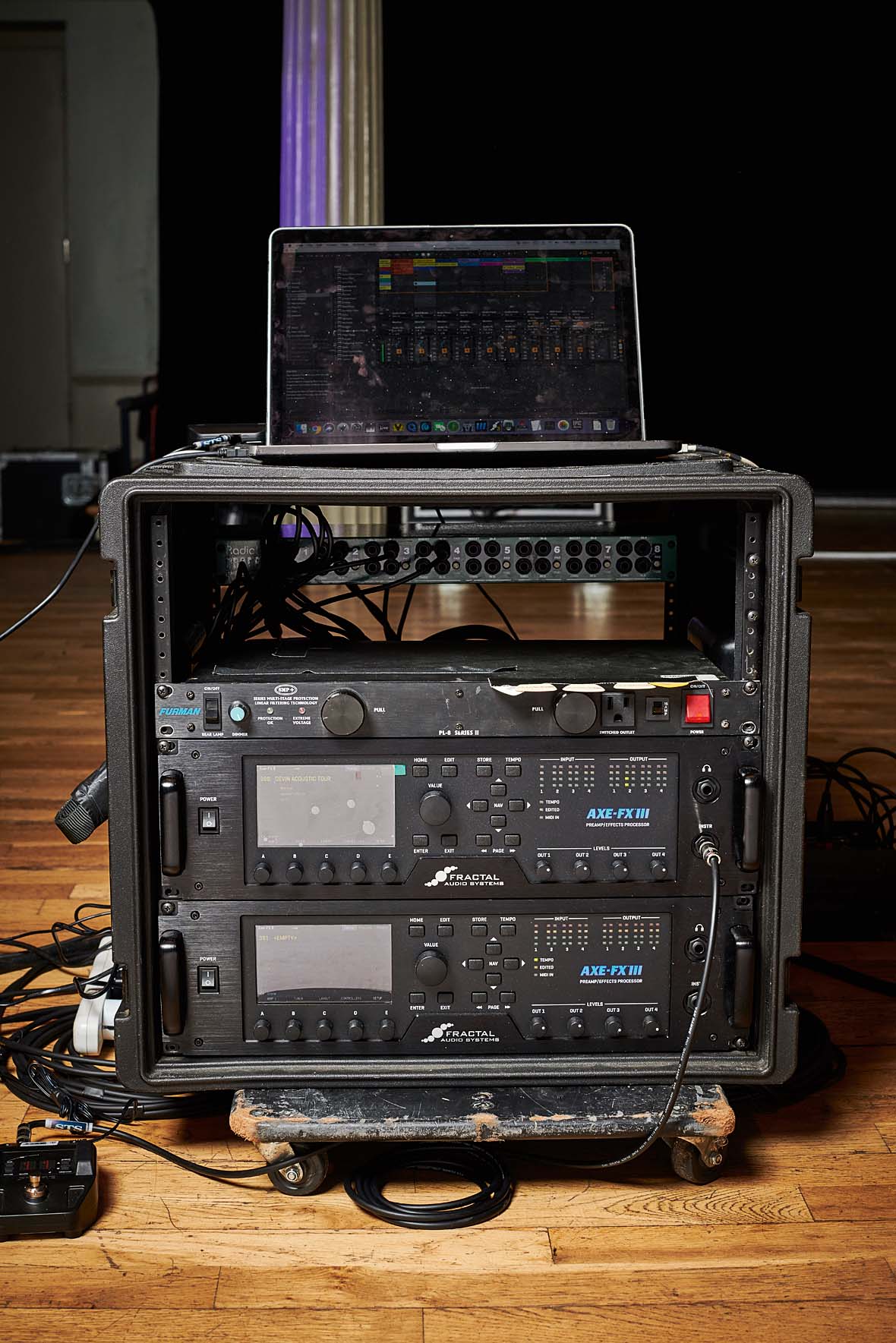
Did you ever take vocal lessons?
"I took various vocal lessons, but none of them taught me what my grade nine choir teacher taught me. His name was Peter Springer. The town we grew up in, in Canada which is part of the commonwealth, was New Westminster, and I was raised in Surrey. Which was funny when I finally got over to the UK!
"But Surrey was a real low-income sort of area when I was growing up: trans ams and AC/DC and everyone got hammered on the weekends. But because I always had a real strong artistic sense, I felt like I had to suppress it in some ways back then, because it didn’t feel appropriate for where I was raised.
"But my choir teacher was the one who instilled a real sense of confidence in me. He was like ‘You should really just get over that, learn to sing and be who you’re meant to be’. So he taught me all the fundamentals of singing. Along the way I’ve learnt various things from people like vocal warm-ups or ways of maintaining my voice. But it was him that really taught me 80 per cent of what I do.
"You have a lot of control over the tonality of your voice, was that difficult to achieve? Somebody led me to a Myles Kennedy interview yesterday where he’s talking about his vocal technique. He knows what he’s doing, so I thought ‘I’d like to read this’. In the interview he’s like ‘I utilize the top part of my palette for this and that, and I’ve got this operatic technique that I went to school for for breaking between the head tone and the chest tone…’
I’m good friends with Frederik from Meshuggah, and he’s credited for inventing this djent thing. And he’s just like ‘What the fuck?’
"I realized that I felt quite insecure because I don’t know any of this. None of it. In fact, whatever technique I have has been based on trial and error. I know what I do, but I don’t know the technical aspect.
"There’s this trend lately on YouTube where they have vocal teachers reacting to performances. First off: there can’t be that many vocal teachers! But I watched one, and I got about halfway through because it’s hard to watch somebody talking about you. They were explaining my technique and how I control it and I’m like ‘I have no idea’.
"I’ve been touring for 25 years and I’m 46, so now it’s much more about that rather than the awareness of a technique. If I was pressed then I could probably describe what I am doing to the point that it would make sense."
But Myles is really good. Tonally it’s something different than I go for, but he’s one of the few guys who has really got a good voice. He can sing the shit out of it. He had a solo acoustic album recently that made me go ‘This guy really knows how to sing’. It’s funny, I was going for a walk the other day and I was listening to Exodus. People have credited me for years now saying ‘You scream in tune’ as if it was some sort of unique talent. But listening to Exodus, I was like, ‘Yeah, that’s what they do too’.
"Faith No More did that, Soundgarden did that, Pantera did that. I heard the other day that it’s called a vocal fry. I find it almost offensive when you deconstruct something like that. My whole approach, same as guitar, is just to do it until it works! I’m good friends with Frederik from Meshuggah, and he’s credited for inventing this djent thing. And he’s just like ‘What the fuck?’. It’s funny how you can be credited on some level for something that you feel no responsibility for!
It’s well-known that you got started playing with Steve Vai, how did that come about?
"After King’s X and all that sort of stuff I really got into guitar heroes. For about two or three years all I wanted to do was listen to Vinnie Moore, Steve Vai, Joe Satriani, Tony McAlpine and all of the Shrapnel stuff. That was it for me. Then when Passion And Warfare came out I just loved Steve, it was great.
"Then when I was about 17 or 18, that’s when Soundgarden and Faith No More and Godflesh started to replace that. Right around that time is when I met Steve. I got signed to Relativity by the demo that I’d made. They flew me out to New York and gave me a really cool record deal, so I went back and started recording it. Then they called me about a month after I started recording and said ‘By the way, there’s another guy on our label, Steve, who’s looking for a singer and he heard your demo and freaked out. He really wants to start working with you’ and I was blown away.
"But, because now what I was really interested in was [what I was doing], when I met up with Steve it was sort of like in a sense that I was trying to prove not only to myself but to him ‘Oh, I’m past this’. Not like ‘I’m better than this’, but when you’re that age you’re really trying to find your own identity. And I was like, ‘That was where I was when I was 16, but now I want everything to be really heavy’. So I think that negatively affected our relationship, but it created the type of tension between us that some people really enjoy retroactively."
Steve’s fanbase don’t want to hear vocals. The management that we had was Desmond Child who was like a pop songwriter who’d worked with Elton John and Bon Jovi. He was convinced that we needed to be a band that has songs on the radio
"We did the Sex And Religion album, and we did a bunch of touring, and it was a very confusing time. The record was not received particularly well, and I think rightly so. Steve’s fanbase don’t want to hear vocals. The management that we had was Desmond Child who was like a pop songwriter who’d worked with Elton John and Bon Jovi. He was convinced that we needed to be a band that has songs on the radio, so he wrote a bunch of songs like In My Dreams With You and I hated that song. Really hated it.
"His lyrics were so personal to him that as a kid singing it, I was really embarrassed by it. And it’s not like I thought it was bad, I just really wanted to be where I wanted to be – I had my record deal and my band with a seven-record deal and I was like, ‘This is what I want to do’. It was just so different to In My Dreams With You and stuff like that, that I really resented it at the time.
"That was conflicting to me too because singing for him, that’s why I’m here. It’s why we’re talking today, without that situation things would have been profoundly different. And I even realised that at the time – it was the best possible thing that could happen to me, mixed with ‘Oh, I hate this’ and my behaviour reflected that I think. That lasted maybe two and a half/three years."
Steve is on Empath, so clearly things are different now?
"At 46, holy shit, Steve and I are really good friends now. At the time he was only 34 years old, and I was only 19. Plus he was a 34 year-old who had just come off being a fucking rockstar and had millions of dollars! So I think as soon as I would admit my failings in that situation, he would admit where he went south on that too. We collided at a point in our lives where I think we needed each other in a lot of ways.
"But because the situation was so… weird, I really resented singing after that, and I didn’t want to play guitar solos anymore. So it’s taken this long to really get back into that. I just wanted to be like ‘Listen to how ugly this can be!’
Did you and Vai play a lot of guitar together?
"I think a lot of proficiency that I had garnered as a teen got put to good use in Steve’s band because I was able to play a lot of what he asked me to play. Like, I was really good at sweep picking – we all were at that age – but that was something that he hadn’t practiced so I kind of used that to my advantage! He kept practicing it, now he can do it really well, right? But at the time he was just like ‘Fuck! I never practiced that shit!’ and I’d stand there [mimes sweeping].
"But I came out of it not wanting to do solos, and also telling myself that nobody is ever going to tell me what to sing ever again. It shapes negatively as well because I think I end up with these self-conscious obstacles that you don’t realise are part of the litany of things that you’d be better off without. So luckily, I feel like these things have worked themselves out over the past few years.
Some people might not know you were a member of The Wildhearts. It’s not an obvious pairing…
"We were on tour with Aerosmith, which was this big arena tour and it was awesome! We were playing the NEC, I think, and after the show Big Mick, who does the sound for Metallica, came up to Steve and said ‘Your soundman is shit. I’ll come on tour with you, but you have to take the band that I’m managing to open for you’ and that was The Wildhearts.
"So, we went on tour and I was just so angry during this tour. One of the guys in our crew who was always just a peckerhead, and he was to Ginge. He came in one day and he was all white and he goes ‘The singer from the band just held me up against the back of the venue with a broken bottle and said he was going to cut my throat!’ and I was like ‘Who is this again?!” Then I just ended up spending a lot of time with The Wildhearts.
I think a lot of proficiency that I had garnered as a teen got put to good use in Steve’s band because I was able to play a lot of what he asked me to play.
"One day, Steve did something that I got really upset about and it was the straw that broke the camel’s back. As a kid, regretfully I ended up destroying his back room… and then Ginge asked me to join the band!
"It’s out of character for me to do anything like that, so it was just one of these fortuitous moments where our paths crossed. So I moved to Wendesbury, which is basically 400 council houses and 500 pubs on the outskirts of Birmingham, and I was with them for about a year and a half. It was during the Fuck album, we did a bunch of shows and a tour with Suicidal Tendencies and Reading Festival and stuff. Then I got signed to Century Media for the angry stuff that I was doing.
"I moved back home to start working on that, then Ginge came to Vancouver and stayed with me for a while. I love Ginge though, man. I think we have respect for each other, I may be right or I may be wrong. We’re both pretty strong-willed but on opposite ends of the spectrum. I don’t do anything that I don’t want to do, and nor does he."
It takes a lot to arrive at that sort of attitude
"It’s been incremental that my resolve has taken shape. For years I would do what people wanted. But one at a time I was like ‘Ok, I’m not going to do that anymore’, and even down to the people that I work with. Not in a combative way. On Empath I said to the label and management, ‘You’re not getting any demos, I’m going to spend whatever I feel like spending on it, and once it’s done, I’m not going to change it. Sorry!'
"These are steps that as an artist I think I need to take for myself. Because otherwise I think you run into this situation of doing what is expected of you to the behest of what you should be doing. So I’ve sort of battened down the hatches the last while and it’s been really helpful for me."
- Devin Townsend's Empath is out now via InsideOutMusic. Order it here.
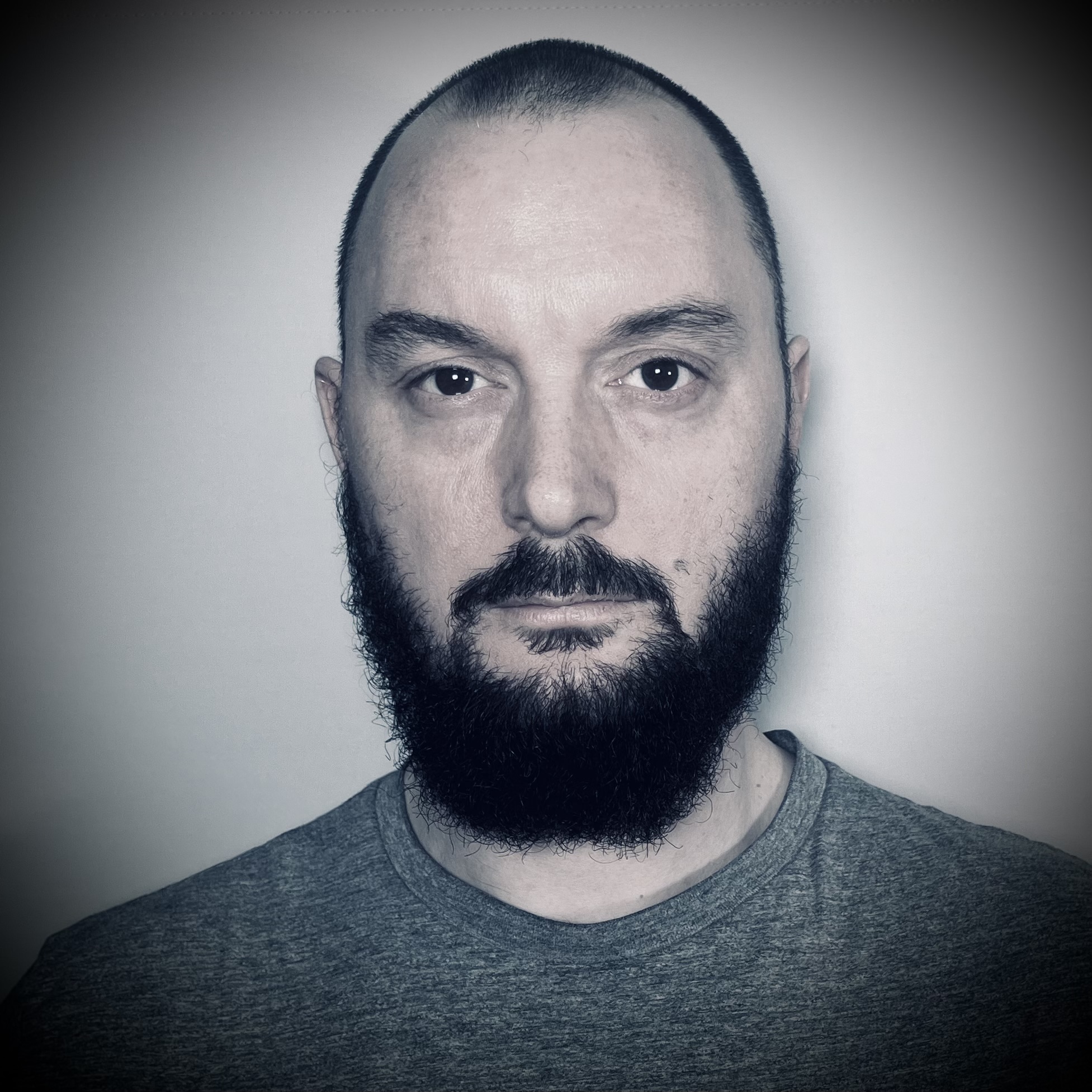
Stuart has been working for guitar publications since 2008, beginning his career as Reviews Editor for Total Guitar before becoming Editor for six years. During this time, he and the team brought the magazine into the modern age with digital editions, a Youtube channel and the Apple chart-bothering Total Guitar Podcast. Stuart has also served as a freelance writer for Guitar World, Guitarist and MusicRadar reviewing hundreds of products spanning everything from acoustic guitars to valve amps, modelers and plugins. When not spouting his opinions on the best new gear, Stuart has been reminded on many occasions that the 'never meet your heroes' rule is entirely wrong, clocking-up interviews with the likes of Eddie Van Halen, Foo Fighters, Green Day and many, many more. If he's not playing the guitar, you'll likely find Stuart behind the kit playing Valerie to newlyweds.
“Norm was like, ‘Do you want to play with Joe?’ Before I could say ‘yes’ or ‘no,’ he brings Joe over and tells him, ‘Jason wants to play a set’”: Jason Sinay on jamming with Joe Bonamassa – and why his early sessions with Mike Campbell were a struggle
“I remember there was a video of Gary Moore and he played Red House on this Fiesta Red Strat, and I thought it was just the most incredible thing”: Is Toby Lee Britain’s next blues-rock superstar?
